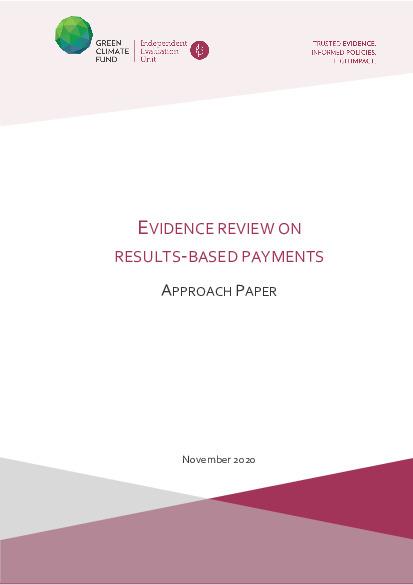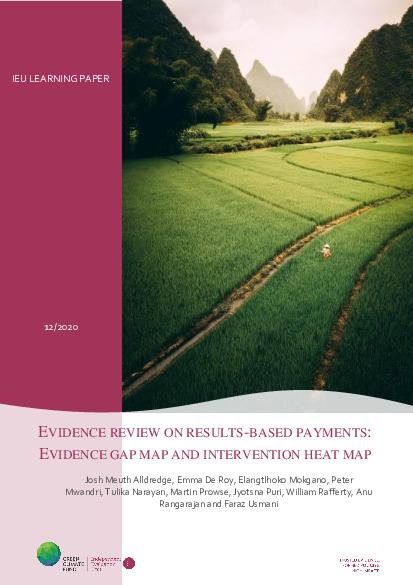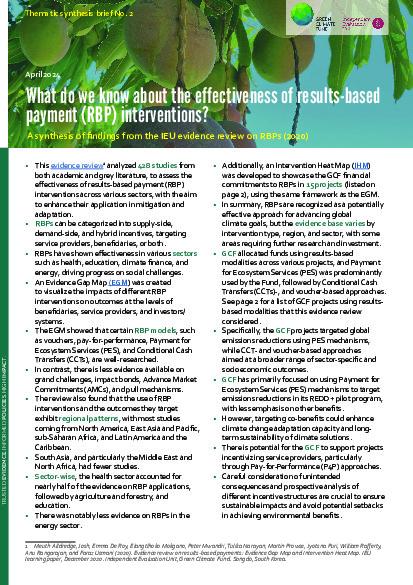Evidence review: Results-based payments
Evidence review: Results-based payments
Results-based payment interventions involves a funder who agrees to make payments to agents for achieving pre-agreed, verified results. In so doing, result-based payment interventions convene multiple agents to achieve outcomes and in the process. This evidence review focuses on results-based payment interventions at national to community scales in desired outcome areas globally.
Key documents

Approach paper: Evidence review on results-based payments
November 2020
Results-based payments provide funding conditional on actions undertaken by target beneficiaries and verified by third parties. This approach paper outlines that this evidence review will adopt a broad approach to take stock of the literature on the effectiveness of RBP interventions across (1) all sectors where they have been used (such as agriculture, education and health); (2) multiple types of outcomes; and (3) multiple levels (namely, assessments of RBP interventions that target outcomes at the beneficiary, service provider, investor and system-wide levels).

Evidence gap map and intervention heat map: Evidence review on results-based payments
December 2020
The evidence gap map (EGM) reveals that nearly half the evidence across all countries is drawn from applications in the health sector. Evidence on RBPs in the energy sector is sorely lacking. The intervention heat map (IHM) highlights the distribution of approved financial commitments by the Green Climate Fund that employ results-based modalities. A comparison of the EGM and the IHM reveals that there is potential for greater use of results-based approaches.
